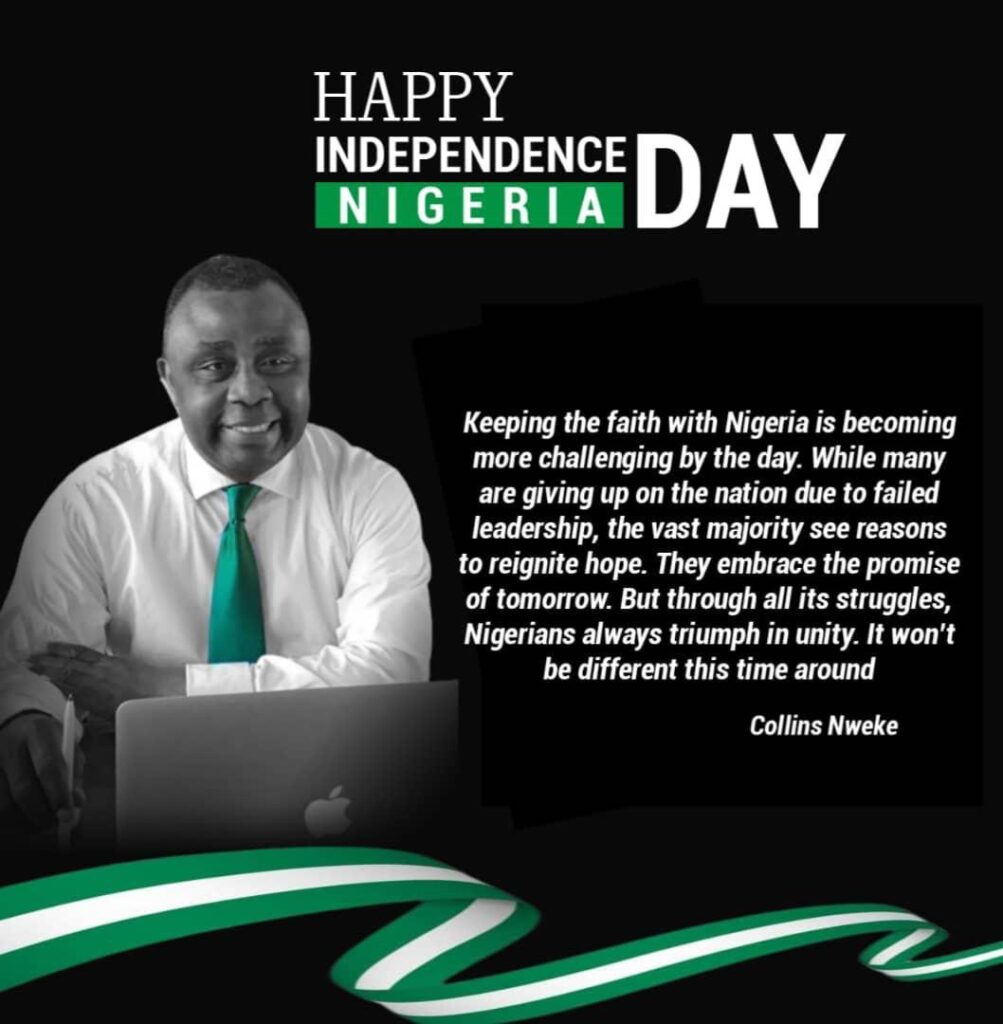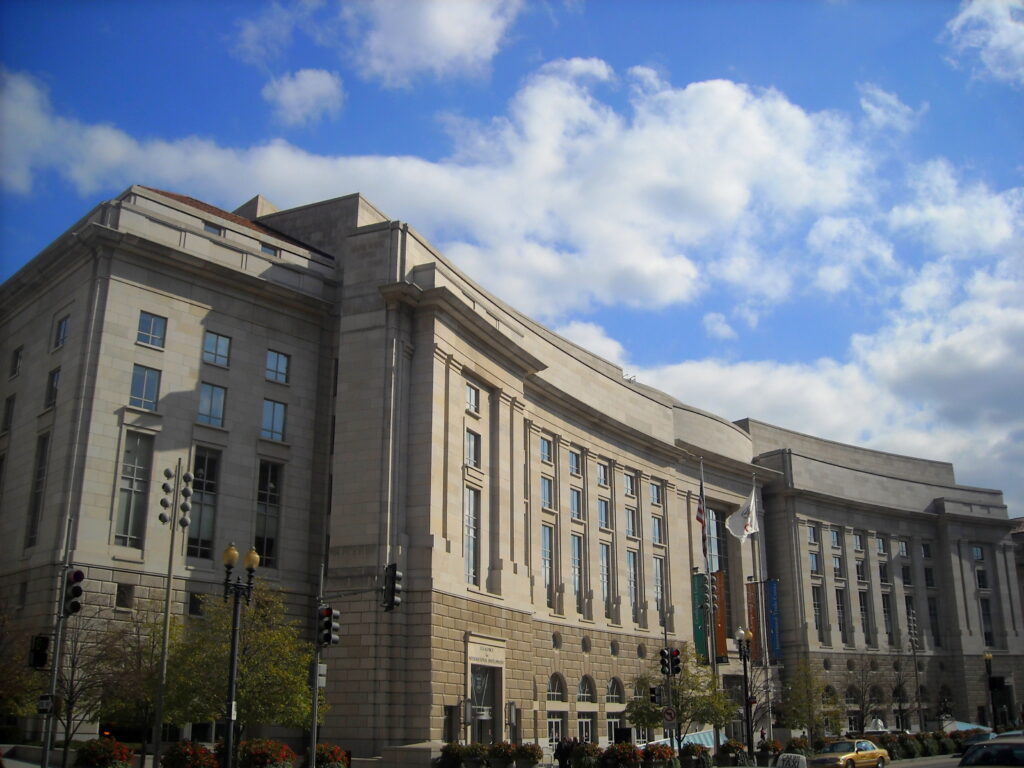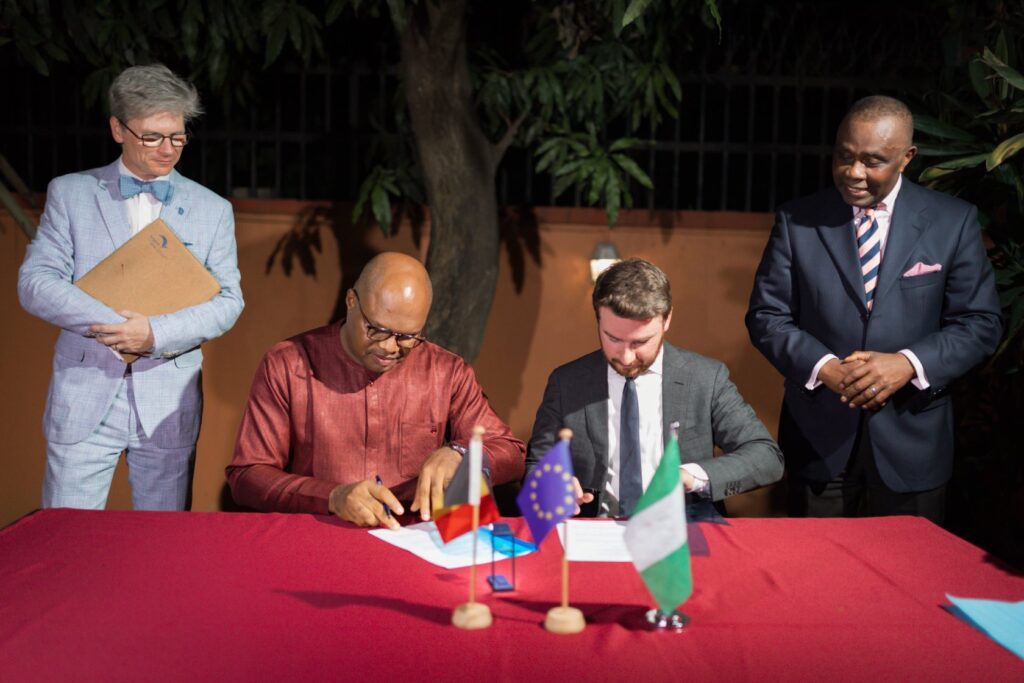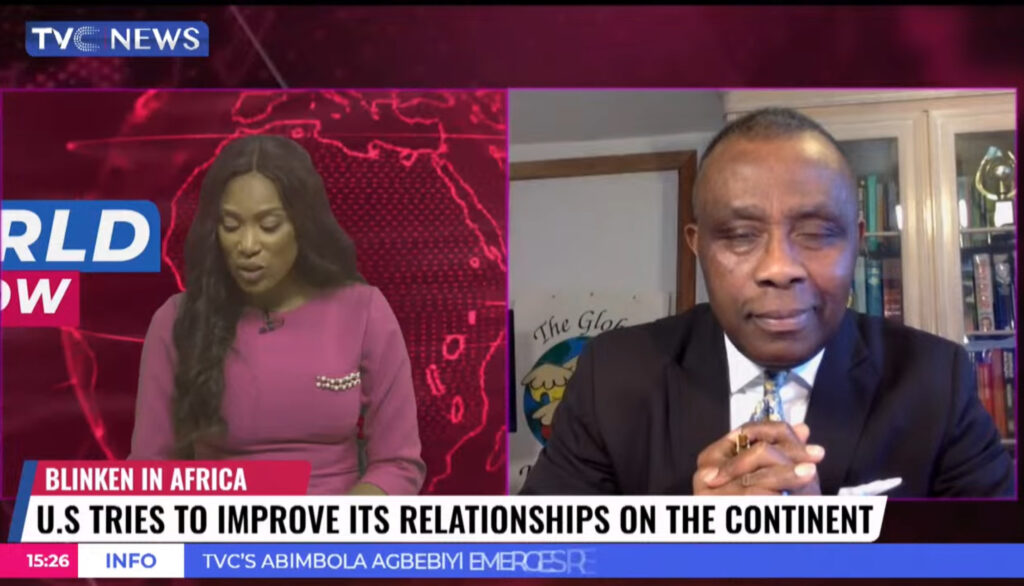Shared some thoughts earlier this evening on the 2024 EU Summit. Will Russia Negotiate With Ukraine? That is the central query. Hear my views in The World Today https://youtu.be/A6y1LFBZltU?si=Hq_VN3sYzycCESX1 via @YouTube
Tag: diplomacy
Nigeria@64
At 64 years post-independence, Nigeria stands as a nation of immense potential but also significant challenges.

While the country has made marginal advances in areas such as economic growth in some sectors and regional diplomacy, it continues to face persistent obstacles, including corruption, insecurity, and underdevelopment.
The success of Nigeria as a nation-state will depend on addressing these structural challenges while harnessing its human and natural resources for more equitable and sustainable development. #HappyIndependence #NigeriaAt64 #KeepHopeAlive #NigeriansWillNotGiveUp
Clean Energy Transition: the global south versus the world.
In this extensive duo conversation, Secretary General of CBL-ACP Chamber of Commerce, Thomas De Beule and I were engaged by journalist Stephen Imediegwu of RadioNow FM Lagos. Within the framework of a mission to Nigeria to unveil and promote the 2nd Nigeria Belgium Luxembourg Business Forum, holding in Brussels, Belgium on 18 – 20 September 2024, we sought to speak to the notion of Oil been a dead commodity.
The Diaspora as Drivers of Service Export for Nigeria
In this conversation with TVC Breakfast anchored on my policy recommendation for an organised service export for Nigeria, I highlighted the Diaspora component of Nigeria’s current Renewed 4D Foreign Policy doctrine as providing the required framework.
US-Nigeria Partnership in a Changing Global Arena
Nigeria’s Foreign Minister, H.E. Ambassador Yusuf Maitama Tuggar, offered his perspectives, and the 4D strategic vision for and on the evolving Nigeria-United States partnership.
At the Woodrow Wilson Center in Washington DC, Nigeria’s Foreign Minister, H.E. Ambassador Yusuf Maitama Tuggar, offered his perspectives on the evolving Nigeria-United States partnership. The event, “US-Nigeria Partnership in the Changing Global Arena,” drew a distinguished audience comprising diplomatic figures, former US ambassadors to Nigeria, and policy experts. Moderated by Oge Onubogu, Director of the Wilson Center‘s Africa Program, the discussion centered on the multidimensional relationship between the two countries and its broader ramifications for global security and development.

Nigeria’s Strategic Role and Demographic Potential
Minister Tuggar emphasized the historical depth and strength of the US-Nigeria relationship, which dates back to Nigeria’s independence in 1960. Highlighting Nigeria’s role as a regional leader in Africa, he underscored Nigeria’s significant population, with over 200 million people, half of whom are under the age of 30, presenting both challenges and opportunities for the nation and the importance of collaboration in areas such as security, economic development, and democratic governance. The minister’s remarks were timely, coming on the heels of the recently concluded sixth US-Nigeria Binational Commission in Abuja, where both nations reaffirmed their commitment to addressing shared challenges.
The “4D” Agenda: Democracy, Development, Demography, and Diaspora
One of the central themes of Tuggar’s address was Nigeria’s new foreign policy vision, encapsulated in the “4D” agenda: Democracy, Development, Demography, and Diaspora – under President Bola Tinubu. He articulated how these pillars are integral to Nigeria’s strategy to navigate the complexities of the current global landscape.
Emphasizing Nigeria’s commitment to democracy, the minister highlighted the nation’s role in promoting democratic values across the African continent. He noted that Nigeria, with its demographic, is poised to harness the dividend of its growing population to drive sustainable development and economic growth.
On development, Minister Tuggar stressed the importance of infrastructure projects and economic reforms aimed at creating jobs and fostering inclusive growth. He outlined Nigeria’s ambitious infrastructure development plans, including the expansion of broadband cabling, the adoption of 5G technology, and the construction of gas pipelines to leverage Nigeria’s significant gas reserves; noting the importance of trade and investment partnerships with the United States to support these initiatives.
Engaging the Nigeria Diaspora community is a key focus of the administration; whether in terms of investment opportunities or tapping its diaspora human capital. The minister called for greater investment in Nigeria’s vast gas reserves as a transition fuel, which would support industrialization and energy security while also addressing climate change concerns. He spoke about the significance of intellectual property rights in protecting Nigeria’s burgeoning creative industries, which include Nollywood and the Afrobeats music scenes; buttressing the role the music genre has played in putting Nigeria on the global stage.
Security Cooperation and Counterterrorism
Addressing the issue of security, Tuggar acknowledged the challenges posed by terrorism and transnational crime in the West African region. He called for enhanced US-Nigeria cooperation in counterterrorism efforts, including the provision of advanced military equipment and training. The minister also highlighted Nigeria’s commitment to human rights and transparency in its security operations, noting the establishment of a human rights desk within the Nigerian Army.
The conversation also touched on Nigeria’s strategic autonomy in its foreign policy, with Ambassador Tuggar affirming the nation’s non-aligned stance. He stressed the importance of homegrown solutions to African problems and warned against the presence of foreign mercenaries and private military companies in the region. The minister reiterated Nigeria’s opposition to any form of external dominance and called for partnerships that respect Nigeria’s sovereignty and promote mutual benefit.
Internal Security Challenges and International Partnerships
Minister Tuggar also addressed Nigeria’s internal security challenges, particularly the fight against terrorism and insurgency. He highlighted the critical role of international partnerships in providing the necessary weapons, equipment, and technical support to combat these threats effectively. The minister called for a reevaluation of restrictions like the Leahy Law, which prohibits the sale of certain military equipment to Nigeria, arguing that such limitations hinder Nigeria’s ability to address security threats comprehensively.
Israel-Palestine Conflicts and Nigeria’s Stance
A key highlight of the discussion was Nigeria’s stance on global conflicts, such as the Israel-Palestine crisis and the ongoing war in Ukraine. Minister Tuggar expressed Nigeria’s support for a two-state solution in the Israel-Palestine conflict and reaffirmed the nation’s commitment to upholding principles of sovereignty and territorial integrity in Ukraine.
The event marked Minister Tuggar’s first official visit to Washington, D.C., and he expressed optimism about the future of US-Nigeria relations.
Belgian listening ears to Nigerian Investors and Innovators

There is much more than meets the eye at first sight, and our trade statistics are not telling the whole story. What is Belgium doing in and for Nigeria? Two fresh stories from the last two months provide excellent examples of it. – Amb. Pieter Leenbregt
Full text of: WELCOME REMARKS BY HIS EXCELLENCY AMBASSADOR PIETER LEENBREGT AT THE ABUJA BUSINESS RECEPTION TO UNVEIL THE 2024 NIGERIA BELGIUM LUXEMBOURG BUSINESS FORUM
Your Excellency Uba Maigari Ahmadu, Honorable Minister of State for Steel Development,
Honorable Adamu Saba, Chairman of the Parliamentary Friendship Group Nigeria-Belgium at the National Assembly,
Honorable Members of the same Friendship Group,
Honorable Tochukwu Okere, Chairman of the House Committee on Diaspora Affairs at the National Assembly,
Excellencies, Colleagues members of the diplomatic corps,
Dear businesspeople,
Esteemed members of the press corps,
Ladies and gentlemen,
The Belgian Embassy in Nigeria warmly welcomes the representatives of the Chamber of Commerce between Belgium, Luxembourg and the African, Caribbean and Pacific countries – CBL ACP – and its partners and sponsors for tonight.
We rejoice in the prospect of a Nigeria Belgium Luxembourg Business Forum to be held from 18 to 20 September in Brussels and will gladly hear out Thomas De Beule about the CBL ACP plans in that regards. As you may know, Belgium does not only host most of the EU institutions on its soil but is currently also holding the rotating presidency of the EU Council, until end of June this year. This means lots of additional VIP travel between Belgium and Nigeria. And it is only befitting that the EU’s Business Forum in Abuja and your Business Forum focused on Nigeria in Brussels are organized with only the summer holidays in between them both – almost back-to-back, one could say.
We were always very enchanted with the strong business focus in the work of the immediate past Nigerian ambassador Obinna Onowu in Brussels and are hopeful that his successor will put an equal emphasis on it. From the point of view of our Embassy, too, things are crystal-clear in this regard: Nigeria is not so much a partner country for development cooperation as so many other ones in the sub-region; it is a middle-income country open for and eager to do business.
There is much more than meets the eye at first sight, and our trade statistics are not telling the whole story. What is Belgium doing in and for Nigeria? Two fresh stories from the last two months provide excellent examples of it.
One month before the EU and Nigeria signed a deal worth 18 million euro to boost vaccines production in Nigeria, and in the sidelines of a Ministerial level event on Health Sovereignty in Africa organized by the Belgian EU presidency in the Egmont Palace in Brussels, the Belgian company Univercells signed a Memorandum of Understanding with the Minister of Health, HE Muhammad Ali Pate. Their ultimate goal is to save more lives and provide affordable healthcare for all Nigerians. An ensuing action plan will now focus on the production in Nigeria of MRNA type vaccines against Lassa fever, and on training local capacity. Developing MRNA vaccines in Nigeria was mentioned by Minister for Foreign Affairs Tuggar as one of the six big priority areas in the collaboration between Europe and Nigeria – and a Belgian SME knows how to unpack this. With revolutionary business practices and scientific methods, they also know how to bring down the dimensions of a production facility from a classic big factory building to something the size of a classroom.
Example number two, now: two weeks after the EU and Nigeria celebrated Zero Waste Day together in Abuja, we received word that a Brussels-based company, Haemers Technologies, was identified by HYPREP, the Nigerian agency in charge of remediation for the oil pollution in the Niger Delta, as the ideal partner to be part of the clean-up there. With its thermal desorption techniques, Haemers Technologies also caught the attention of the Vietnamese government in combating the harmful effects of Agent Orange dropped by the US army during the war in the sixties and seventies. After a technology tour in three countries, HYPREP and the Nigerian Ministry of the Environment got convinced that the Belgian SME can enable them to “deploy the best innovative technology that can be found globally”.
If all goes smoothly, a contract will be signed in a matter of weeks from now. The clean-up will finally bring justice to the Ogoni people decades after their land got contaminated by oil majors, and after Ken Saro-Wiwa and his friends, during the Sani Abacha dictatorship era, paid with their lives for their engagement to the cause of reparation. It will also implement a UN assessment report on how to deal with the oil spills, more than a decade after it was drafted. And, as in the case of Univercells, training local people and transferring knowledge and technology will be central to Haemers’ endeavors.
On a more business-to-business level, we welcomed in Lagos in late January a very self-organized, compact trade mission of eight Belgian companies around Vyncke, specialized in waste solutions, renewable energy generation, water treatment and food storage and processing. May many more of them find the way to Nigeria.
Meanwhile, after the Covid lull, the activity of various relevant Chambers of Commerce has notably picked up again between our countries. Both Eurocham and the Nigerian Belgian Chamber of Commerce are programming interesting activities this year and are keeping a listening ear to the needs of our actual and potential investors and innovators in Nigeria. And right here, this evening, the Belgian-Luxembourg-ACP Chamber will sign an MoU with the Abuja Chamber of Commerce and Industry. We are looking forward to ever more such engagements and interactions.
During the past three days, Brussels hosted the World Cocoa Conference, and an exchange of expertise between government experts from cocoa producing countries will be organized in the wake of it in June, by our Ministry’s think tank the Egmont Institute. As with the past Conference, Nigerian participants are keenly invited.
To paraphrase both presidents Barack Obama and Bola Tinubu: Belgian companies come to Nigeria with the audacity of renewed hope, and vice versa. Here’s wishing for many hopeful and promising chapters indeed!
Where is the African Interests in the US-China Battle for Influence?

US Secretary Of State, Antony Blinken has been back in Africa since Sunday 21 January 2024, for a week visit. Nigeria is one of his four planned stops.
Key question in the lips of Africa watchers is if Blinken Africa shuttle diplomacy is out of love for Africa? I’d say Nope!👎🏾 It can only be out of protection of America’s interests & investments, obviously!👍🏾
And Africa’s interests? Who’s protecting those? Certainly not its leaders, if they even know what Africa’s interests are… that is! Except for a tiny few.
I had a short interaction with Television Continental TVC anchor, Precious Amayo, around how Nigeria could derive its best interests. I even attempted a couple of suggestions.
In doing so, I reminded myself of an ongoing conversation at a Think Tank I am associated with, People Expertise & Excellence Foundation (PEEF) under the leadership of Dr. MUSA RABIU, FCIPM about the prospect of Nigeria commencing manufacture of Military Hardware at its Ajaokuta Steel Plant.
I was quick to assert that in the battle between the US & China over influence in Africa, the continent ought not have a dog in that fight. There ought to be sufficient space for all in a potentially prosperous Africa. Not Turkey, not Russia and others with eyes on the raw materials, minerals, and young human capital of Africa, should be ignored.
African Governments, especially led by Nigeria, must undertake a value analysis to determine their advantageous positioning with the US & China, as both powers battle for influence over Africa.
Ajaokuta Steel Plant Nigeria in its planned commencement of manufacturing of Military Hardware for instance, could become an almost insatiable market for weapon spare parts for America’s weapon industry?
Just thinking aloud…🤔 in this interview on TVC
The Union Now in Bed with its 23 Million Third-Country Nationals

The European Union (EU) has taken a significant step towards fostering a more inclusive and welcoming environment for third-country nationals within its borders. EU Member States have reached an agreement on a negotiating mandate to update the EU Long-Term Residents Directive, which establishes the criteria for non-EU citizens to acquire long-term resident status within the EU.
In a significant move, EU Member States have reached an agreement on a negotiating mandate to update the EU Long-Term Residents Directive, which outlines the criteria for third-country nationals to acquire long-term resident status within the bloc. The proposed updates include a more flexible approach to residency requirements, targeted integration measures, and enhanced intra-EU mobility. These changes are expected to benefit millions of third-country nationals living in the EU.
Major Highlights of EU Long-Term Residency Rules
1. Streamlined Residency Requirements
The proposed updates introduce a more flexible approach to residency requirements, allowing third-country nationals to accumulate residence periods of up to two years in other EU Member States to meet the overall five-year residency requirement. This provision aims to ease the path to long-term resident status for individuals who have moved within the EU for work or study purposes.
Long-term resident status is permanent. However, it can be withdrawn in certain cases, for instance, when a person has not had their main residence in the EU for a certain period of time.said EU Council
2. Targeted Integration Measures
The directive emphasizes the importance of integration for long-term residents, encouraging Member States to implement integration measures tailored to specific needs and circumstances. These measures may include language courses, cultural orientation, and civic education.
3. Enhanced Intra-EU Mobility
EU long-term residents will continue to enjoy the right to intra-EU mobility, enabling them to move and reside in other EU Member States for work, study, or other purposes. However, this right remains subject to certain conditions, such as labour market assessments by Member States to ensure that their domestic labour markets are not negatively impacted.
This right to intra-EU mobility is not an automatic right but is subject to a number of conditions. Such a condition is that member states may assess the situation of their national labour markets in case an EU long-term resident moves to their country from another EU member state for work.
4. Enduring Rights and Protections
Once granted, long-term resident status is permanent, providing individuals with long-term stability and security of residence within the EU. However, the directive also outlines specific circumstances under which this status may be withdrawn, such as prolonged absences from the EU or engagement in activities that threaten public security or order. By streamlining residency requirements, promoting integration, and upholding the right to intra-EU mobility, the directive aims to empower non-EU citizens to contribute meaningfully to EU society and achieve their full potential.
Data Snapshot
According to Eurostat data, as of the end of 2020, approximately 23 million third-country nationals were legally residing in the EU, accounting for 5.1% of the EU population. Among these individuals, over ten million held a long-term permanent residence permit. These figures underscore the growing role of non-EU citizens within the EU’s social fabric.
Conclusion
The proposed updates to the EU Long-Term Resident Status Directive represent a significant step forward in promoting integration and mobility for third-country nationals within the EU.
By streamlining residency requirements, emphasising integration measures, and upholding the right to intra-EU mobility, the directive seeks to foster a more inclusive and welcoming environment for non-EU citizens, enabling them to fully contribute to the EU’s economic, social, and cultural landscape.
Inspired by an article by: Manish Khandelwal | Photo Credit: Freepik
By streamlining residency requirements, emphasizing integration measures, and upholding the right to intra-EU mobility, the directive seeks to foster a more inclusive and welcoming environment for non-EU citizens, enabling them to fully contribute to the EU’s economic, social, and cultural landscape.
Tinubu at his First UN General Assembly
Here an attempt to predict what Tinubu will be telling the world when he speaks later today at the 78th United Nations General Assembly
Whole Society Approach to Counter-Terrorism
Today the United Nations wraps up a two-day regional conference in #Nairobi, #Kenya ?? on global actions to prevent and combat terrorism. Here in a news bulletin on #TRTWorld, I shared a brief view on its global implication and what it portends for Africa. https://youtu.be/GgliHkKFM1I